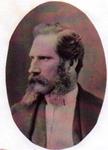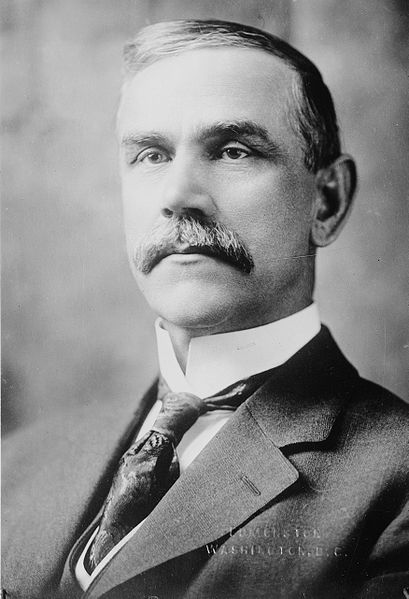-
•
•
40 responses
Goal-setting is a perennial, and for some perennially frustrating, part of Mormonism. I count myself among the frustrated. I have been setting weekly goals for myself since I was a teenager, and I don’t think I’ve ever achieved them all for a single week. I’m getting closer, however. Although I believe that goals are positive and necessary, the costs–especially if expectations are misaligned–can be high. Something to keep in mind is that Church leaders of our generation are selected from a group of very high-achieving professionals. Add to this the willing Mormon tendency towards hagiography, and it’s easy to see… Read More
-
•
•
2 responses
Character not only matters, Lorenzo Snow seems to indicate in the material included in lesson 8 of the Lorenzo Snow manual, it is how we are judged, how the Lord “knows our heart.” This prioritizes, of course, character development, which is, in the end, the focus of this lesson. While I don’t have a Mormon poem that discusses character development itself, I have found several that do discuss what character traits are important, including this one. Read More
-
•
•

I had a hard time finding a poem that fits with this week’s Gospel Doctrine lesson on spiritual gifts. There just aren’t many that even mention spiritual gifts, and most that do seem to be predominantly about another subject. But I was finally able to find one that focuses on the gift of healing, one of the gifts most emphasized in the LDS Church today. There are many others, of course, and the current tendency seems to be to classify things as spiritual gifts that are part of the normal process of learning and living the gospel—things like teaching, testifying… Read More
-
•
•
91 responses
RadioWest hosted a discussion about Mormon Women and the Priesthood this week. It is worth a listen. Read More
-
•
•
8 responses

Elder Ballard started out his recent Conference talk “This Is My Work and My Glory” with this description and commentary on the wonder of the night sky: A few weeks ago, on a cold, dark winter’s night, my wife, Barbara, and I looked in awe up at the sky. The millions of stars seemed exceptionally bright and beautiful. I then turned to the Pearl of Great Price and read again with wonder what the Lord God said to Moses: “And worlds without number have I created; and I also created them for mine own purpose; and by the Son I… Read More
-
•
•
19 responses

In 2009 I helped found Salt Press. This past week I helped close its doors. Read More
-
•
•
39 responses

One of the paradoxes of Mormonism is the heroic status it grants Martin Luther while simultaneously rejecting all of his central teachings. Mormon teachings and the basic narrative of the Restoration in some cases even suggest that the Reformation, however necessary it may have been, was not only incorrect, but also that it was a failure. Read More
-
•
•
24 responses

Of all the deaths in Harry Potter, Dobby’s strikes many people the hardest. It did me. There was absolutely no way I could have kept my eyes dry. If John Locke is right, if actions are the best interpreters of mens thoughts, does this mean that my grief was, in the moment, real? Did I believe, at some level, that Dobby had really lived, and then really died? Did I believe the events of the book were true? Obviously I’m not confused about whether house elves do in fact exist, let alone whether or not Harry Potter is fact or… Read More
-
•
•
13 responses
President Uchtdorf is conducting this final session of Conference, with music by the Tabernacle Choir. Invocation by another female, Sister Stephens — they seem to be everywhere this Conference! Benediction by a male Seventy. Direct quotes of a speaker are in quotation marks, otherwise the text is my summary of their remarks. Read More
-
•
•
6 responses
President Henry B. Eyring is conducting this session of General Conference. Choir — Go Forth in Faith Conducting — President Henry B. Eyring Choir — Let Zion in Her Beauty Rise Invocation — Elder Steven E. Snow President Dieter F. Uchtdorf — “The Hope of God’s Light” It is part of our condition as mortal beings to sometimes feel as though we are surrounded by darkness. …But even though we may feel lost in the midst of our current circumstances, God promises the hope of His light–He promises to illuminate the way before us and show us the way out… Read More
-
•
•
11 responses
President Uchtdorf conducted the priesthood session, which included a number of strong and inspiring talks. Choir — Arise, Oh God, and Shine Invocation — Elder Ronald W. Rasband Choir — Nearer My God to Me Elder Robert D. Hales — “Stand Strong in Holy Places” Brethren, if we are faithful in the priesthood, this armor will be given to us as a gift from God. We need this armor! If you judge your actions and the standards of the Church on the basis of where the world is and where it’s going, you will find that you are not where… Read More
-
•
•
13 responses
President Eyring conducted the afternoon session. President Uchtdorf read a long list of sustainings and releases, notably releasing President Dalton of the Young Women and calling a new President (Bonnie Lee Green Oscarson) and counselors. The annual audit report and statistical report were read: there are now 3005 stakes and 347 missions. In what follows, direct quotations of a speaker are given in quotation marks; quoted scriptures cited where possible; and other text represents my own summary of the speakers remarks. I will try posting updates after each speaker this session. Read More
-
•
•
8 responses
President Uchtdorf conducted this opening session. Opening prayer by a (male) Seventy and music by the Mormon Tabernacle Choir. Direct quotations of a speaker (based on my real-time listening) are given in quotation marks; other text represents my own summary of their remarks. Read More
-
•
•
128 responses
I can’t think of anything quite like this video being done before. Read More
-
•
•
2 responses

As you know, we are to study out of the best books, which entails reading. President Hinckley once lamented, “I confess that I am constantly appalled by the scarcity of my knowledge, and the one resentment I think I carry concerns the many pressing demands which limit the opportunity for reading.” Read More
-
•
•
244 responses
Last week, the U.S. Supreme Court heard arguments in Hollingsworth v. Perry, the constitutional challenge to Proposition 8. I sat down to write a blog post about my thoughts on gay marriage and kept writing and writing and writing. You can read the results here. Like a lot of Latter-day Saints, I have spent a fair amount of time during the last two decades thinking about gay marriage. For better or for worse, it has been one of the main conundrums of Mormon intellectual discussions for my entire adult life. This essay is an attempt to distill my thinking and… Read More
-
•
•
5 responses

In this recent post (which I plan to revisit in the near future) and others, I mentioned the discovery of various ancient Near Eastern texts related to Genesis, such as Enuma Elish. The relationship between these accounts and Genesis has never been definitively settled, though dominant interpretive trends have been clear. At first, German scholars such as Friedrich Delitzsch, driven largely by Protestant bias against the Hebrew Bible and a good bit of anti-Semitism, seized on them as the original sources of Genesis, assuming the relevant bits had been taken more-or-less whole cloth from the Israelites neighbors. This undermined longstanding assumptions of their originality or uniqueness, easily… Read More
-
•
•
6 responses
This is the second post (see first post) discussing ideas presented in the recently published memoir of retired LDS sociologist Armand Mauss, Shifting Borders and a Tattered Passport: Intellectual Journeys of a Mormon Academic (Univ. of Utah Press, 2012; publisher’s page). After taking five years away from his graduate work to serve as a counselor in a bishopric, Mauss returned to his studies in 1962 at UC Berkeley, where he quickly encountered a serious challenge to his faith. Read More
-
•
•
49 responses
In a recent news article discussing the Ordain Women community and its upcoming inaugural meeting, LDS church spokeswoman Jessica Moody stated that the male-only priesthood “was established by Jesus Christ himself and is not a decision to be made by those on Earth.” Of course, there may be a few questions about whether this statement is descriptively accurate, given those pesky Phoebe and Priscilla and Junia verses and whatnot. But let’s set those issues aside for a moment. Because theologically, it does make sense that we might want to follow Jesus’s example here. And factually, a few quirky anomalies aside,… Read More
-
•
•
This April we begin the month looking forward to what comes from 12 men and a few more. We will watch what they do and say, perhaps learning some lessons from them. We may disagree and perhaps even be disappointed in what they do. But we will watch, and what we see will inform how we see the next six months. One of these men has already made a strong statement this week, raising our expectations for this year. Will our expectations be met? Read More
-
•
•
7 responses
At Times and Seasons, we’ve been given an exclusive sneak peek of the new Honor Code, and it promises exciting changes at our favorite university. Some of the changes include: 1. All men must wear a full beard at all time. Those unable to do so will be considered to be honoring the rule if they were an acceptable attire to offset the lack of beard. Such as: 2. To avoid controversy, all male/female clothing guidelines have been merged into one. Pants, tunic, and robe are required clothing at all times outside of dorm rooms. Example: 3. It has been… Read More
-
•
•
40 responses
Many discussions about women and the priesthood get muddled because they don’t pay attention to the fact that “priesthood” involves multiple doctrines and practices, with different rationales, functions, and histories. I thought it might be helpful if I separated the strands of priesthood and thought about them separately. Read More
-
•
•
One response
In Mormonism we talk a lot about concepts like “enduring to the end” and “faithfulness in times of trial” (the subject of the current lesson in the Lorenzo Snow manual). We teach that trials are a necessary part of life, burdens that we need to pass through in order to learn the lessons of life and build our abilities for the next life. Children face these same lessons as they become independent of their mothers (and fathers), as Mormon poet Coral J. Black explores in the following poem. Read More
-
•
•
One response
What does it mean to consecrate? What are the kinds of things we must do, the attitudes and priorities we must have when we consecrate all that we have and that we are to the Lord? Doctrine and Covenants Gospel Doctrine lesson 14 explores the Law of Consecration, focusing on these attitudes and priorities and little on the practical effects of those attitudes. I believe that when we actually do live the law of consecration, our actions will be more like the ideal described by Eliza R. Snow in her poetic description of the Relief Society: Read More
-
•
•
5 responses
Mark 14:26 records “And when they had sung an hymn, they went out into the mount of Olives.” Sometimes people have asked, did they have a hymn book? What did they sing? Israelites did indeed have a hymn book; it was called the Book of Psalms, and certain Psalms were sung on different occasions. Some were sung as one ascended to Jerusalem for certain feasts and holy days, others at the crowning of a new king, others in the temple/tabernacle to accompany certain sacrifices. Notably, the Psalms for Passover were referred to as The Hallel, Psalms 113-118. Hallel should look… Read More
-
•
•
72 responses
Not long ago, on the way to church one Sunday, my son, recently turned twelve, asked me, “Why do I have to wear a tie to church?” Instead of directly answering that question, which would reveal his parents’ rather curtailed ability to compel behavior in their almost-teenage children much earlier than I’d like and short-circuit the altogether salutary process of his exploring those limits in person, I told him why I wear a tie to church. Read More
-
•
•
22 responses
What do you do to commemorate Christ’s resurrection? Modern culture, at least publicly, outside of Christian churches, doesn’t celebrate Easter as much as many other holidays or commemorations. Christmas, Halloween, Independence Day, Memorial Day and Valentines Day all seem to get more attention. I suspect that this is, at least in part, because they have become more commercial, and in doing so have captured the imagination of the public. And to a degree this happens for Easter also, but for some reason the commercialization is not nearly as strong as Christmas, for example. The Easter Bunny just isn’t as popular… Read More
-
•
•
9 responses
It was the women who loved him who were willing to reproach him. First it was his mother: “Son, why hast thou thus dealt with us? behold, thy father and I have sought thee sorrowing” (Luke 2:48-54). She did not understand his actions, this little twelve-year old son of hers. And he didn’t seem to understand her distress. Was he preoccupied in his work, his private calling? Was he unaware of how his actions would make her feel, as emotionally obtuse as only a confident child can be? There was no apology, but his words certainly gave his mother something… Read More
-
•
•
Ladies and gentlemen, the new Maxwell Institute Blog is now live. Check out the announcement about the newly reconstituted Mormon Studies Review. Read More

